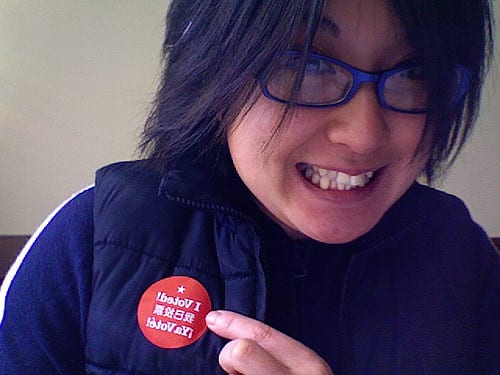
Elections are tight; margins are slim. That's why the Asian American vote matters.
by Karl Catarata | May 3, 2018 10:04 pm
Las Vegas – The Asian American and Pacific Islander (AAPI) population in the United States is often forgotten about, underrepresented in politics, and often thought of as a minority group that is “better off” than others.
This damaging way of thinking about AAPI people is largely due to the “model minority myth,” the idea held by many Americans that Asian American Pacific Islanders are more educated and financially secure than other minority groups.
This simply isn’t true.
The model minority myth often makes us invisible at worst, unimportant at best, to political hopefuls and organizations focused on building electoral power.
A good example is in the national media – AAPI stories are neglected, leaving a majority of Americans to only hear news from groups such as Latinx and Black communities or faith-based groups. And although representation isn’t a competition (plenty of other minority groups like Arab, Middle Eastern, and Native American populations are underrepresented in the media too), this lack of visibility causes campaigns seeking to engage voters to often forget about AAPI voters.
A 2012 study by the Pew Research Center focused on the growth and rising power of AAPIs. The study found that AAPI’s recently passed Hispanics as the largest group of new immigrants in the United States. The New York Times calls the AAPI population a “sleeping political giant,” while NBC says AAPI people are “more politically important than ever.” Yet election after election, AAPI political power remains untapped, and we see articles (like this one) asking why. Despite the fact that the unrealized potential of the AAPI vote covered every election year, we never see any mobilization to engage the AAPI community at the national level.
But it doesn’t have to be this way.
As noted in the New York Times piece, Asian American Pacific Islanders will turn out to vote with strategic, intentional and deliberative strategies, such as focusing outreach on issues like the importance of protecting education and immigration and reaching out to AAPI’s in their first language.
Organizers everywhere can tap into this source of political power if they take steps to engage AAPI populations in their campaigning and outreach.
The key?
Mobilize the AAPI community and address the obstacles that we know prevent minority groups from voting: Inability to access the ballot box, language barriers, absurd voter ID laws that suppress minority votes, and lack of outreach.
There are several groups attempting to make progress on this issue. On the national level, Asian and Pacific Islander American Vote (APIAVote) has succeeded in increasing AAPI civic participating by coaching local ground teams on voter registration and get-out-the-vote initiatives targeted at the AAPI community. Asian Americans Advancing Justice fights for civil rights and voting rights to make voting easier for AAPIs across the country.
At the state level, Virginia has taken the lead when it comes to engaging the AAPI population in local elections. Organizers in Virginia were able to empower more AAPI people to vote in candidates and initiatives that they supported in the 2016 elections. In my home state of Nevada, nonprofit organizations like the Asian Community Development Council (ACDC) and the Asian Pacific American Labor Alliance, AFL-CIO work tirelessly to register AAPI voters, and mobilize AAPI community members on local issues for community events. Countless other local, state and national organizations that focus on the AAPI population are working to mobilize voters, amplify their voices and ultimately influence elections.
The time for organizers, political candidates and national advocacy organizations to recognize the power of the AAPI vote is far overdue. With the 2018 midterm elections just months away, local, state and national organizers should start working now to make sure that the voices and votes of API people are part of the progressive wave we hope to see in November and candidates should not take us for granted.
